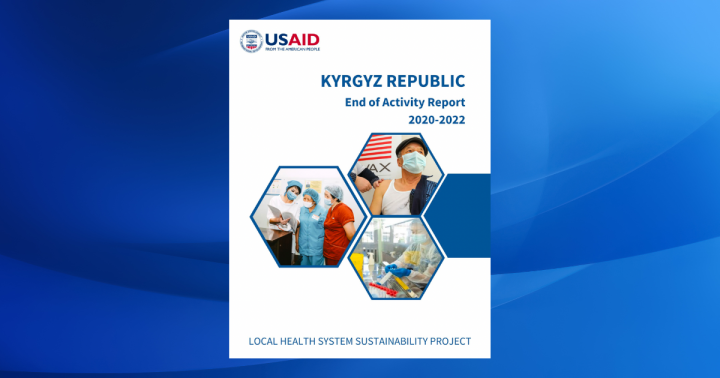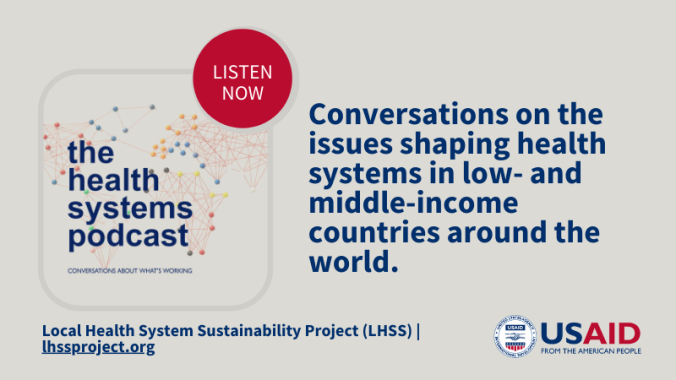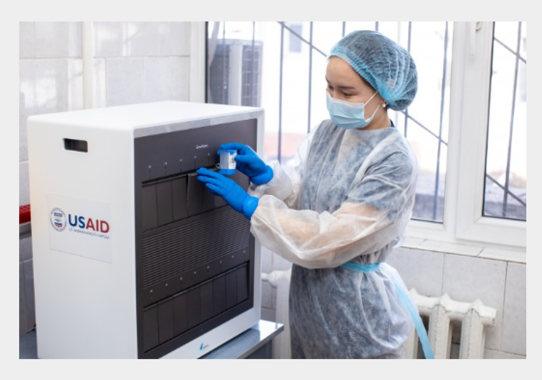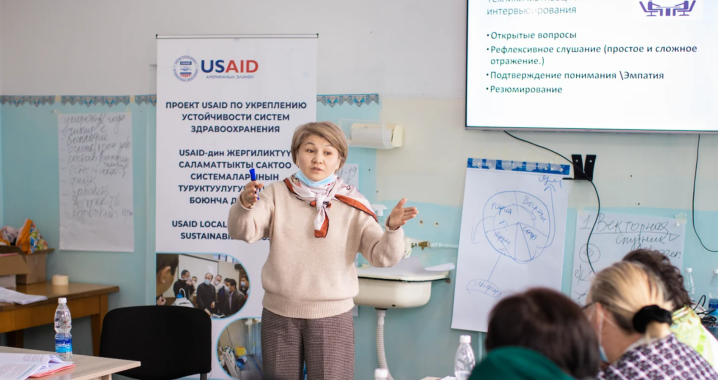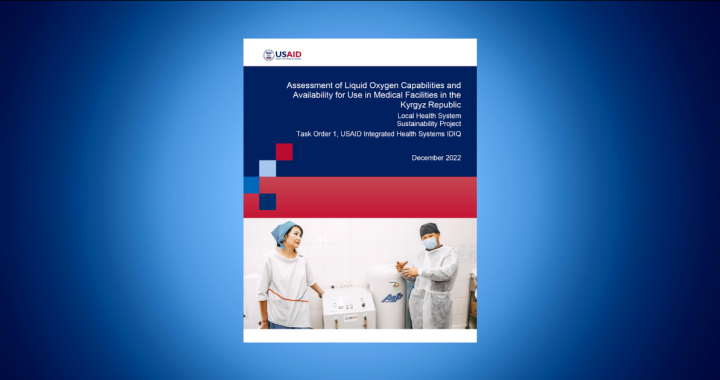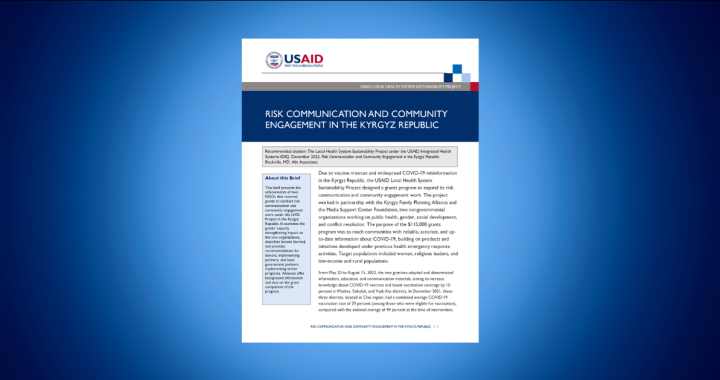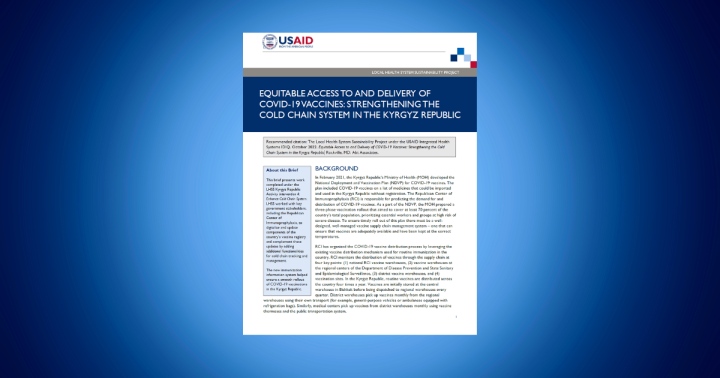The first case of COVID-19 in the Kyrgyz Republic was confirmed on March 1, 2020, with the first death reported on April 3, 2020. Shortly after the first case was confirmed, the government enacted a series of measures to attempt to mitigate the spread of COVID-19, including a 47-day lockdown.
Like most countries, Kyrgyz Republic lacked the necessary infrastructure, supplies, and appropriately trained health workers to launch a robust response. At the start of the pandemic, hospitals quickly reached capacity due to the rapid increase in COVID-19 cases. The situation was further complicated by political instability and changes in MOH leadership and personnel which delayed key decisions and stymied the ability of international partners to support the emergency response.
Approach
In April 2020, LHSS began working to support the country's COVID-19 response, coordinating closely with key government stakeholders and development partners to ensure the interventions supported a national emergency response, while contributing to overall health system strengthening and resilience.
Critical at the start of the pandemic, LHSS supported procurement of priority case detection and case management materials for COVID-19. Additionally, LHSS provided technical assistance to advance infection prevention and control and worked to strengthen laboratory case detection for COVID-19 and other pathogens. Activities also focused on strengthening surveillance and rapid response capacity and supporting risk communication
By March 2021, LHSS began working to advance and strengthen the country’s COVID-19 vaccine roll-out plan, by addressing gaps and weaknesses in the country’s vaccine supply chain, improving operational information on approved vaccine availability, and strengthening health worker interpersonal communication skills for vaccine administration. To address misinformation surrounding WHO-approved vaccines, LHSS partnered with the Republican Center of Immunoprophylaxis and the Republican Center
Key Achievements
- The national virology laboratory in Bishkek was equipped with GeneXpert technology, complemented by in-person training for laboratory specialists on how to use and maintain the equipment. At the end of the Activity, almost 7,000 tests had been run using this equipment.
- Twelve laboratory specialists from nine virology laboratories received mentoring visits to support their ability to improve quality measures in laboratories for precise, reliable, and timely test results.
- Six hundred and seventy-four health care providers, Public Health Emergency Operation Centre specialists, and regional epidemiologists received training on how to use the digital epidemiological investigation cards and emergency notification reporting forms.
- Seven hundred fifty-four primary health care workers participated in distance learning training on infection prevention and control and case management through the Kyrgyz State Medical Institute for Retraining and Continuing Education.
- Six hundred health care providers were trained at the national level on COVID-19 case management through the multi-disciplinary teams network. Oblast and district-level multi-disciplinary teams have increased the number of health care providers appropriately trained to manage COVID-19 cases.
- Four hundred and fifty-four Universal Nurses were trained and are active in four hospitals in Bishkek and Osh cities.
- In 2022, LHSS developed information and communication materials for online platforms. Approximately two million people were engaged through social media, 242,000 individuals were reached by advertising services (Yandex Direct, Google ads) and websites (akipress.kg, 24.kg, super.kg), and 306,000 were engaged via national and local television.
- One hundred and twenty-five specialists from local health promotion centers and over 600 primary health care workers and family doctors trained on how to provide high-quality and comprehensive information on COVID-19 vaccination.
- Ten training sessions for religious communities were held in each district, with the content customized for their needs, norms, and concerns regarding vaccination. Over 300 religious representatives, activists, and mobilizers, including women, community elders, and deputies of local councils, trained on COVID-19 prevention and vaccination, using LHSS-developed materials.
- Four hundred and fifty-nine health care workers from 18 primary health care facilities in Bishkek were trained on how to use the immunization information system modules and dashboards.
- Cold chain management system successfully piloted in 18 health facilities and approved by key stakeholders.
LHSS-supported activities were completed in November 2022.

